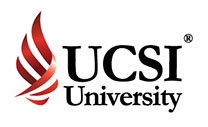| Exam Body | Internal Degree, Malaysia | |||||||||||||||||||||||
|---|---|---|---|---|---|---|---|---|---|---|---|---|---|---|---|---|---|---|---|---|---|---|---|---|
| Course Duration | 4 Yrs | |||||||||||||||||||||||
| Part Time/Full Time | Full Time | |||||||||||||||||||||||
| Fees | 78150/Course | |||||||||||||||||||||||
| Fees (International Student) | 102750/Course | |||||||||||||||||||||||
| Campus | UCSI University, Kuala Lumpur Campus | |||||||||||||||||||||||
| Faculty | Faculty of Medicine and Health Sciences | |||||||||||||||||||||||
| Conducted entirely in Malaysia | Yes | |||||||||||||||||||||||
| Awarding Country | Malaysia | |||||||||||||||||||||||
| Level of Study | Bachelor's Degree Level | |||||||||||||||||||||||
| Field of Study | Medicine & Healthcare | |||||||||||||||||||||||
| Course Description | Optometry is a primary healthcare profession, dedicated to the improvement and preservation of eyesight. Optometric training includes the diagnosis and management of ocular disease, the dispensing of spectacles and contact lenses, and the management of people with special needs (children and those with low vision). Optometrists examine the eyes not only for vision problems, but for early detection of eye diseases and other abnormal systemic conditions. They also test patients for vision depth, colour perception, contrast sensitivity, and the ability to focus and coordinate the eyes. The tests performed in UCSI are comprehensive eye examinations of the internal and external eye structures that utilise accurate instruments. This enables accurate analysis of a patient’s test results that will be further utilised to develop his/her treatment plan to ensure proper eye care management. As such, the ocular management may include any of the following: prescription for eyeglasses or contact lenses, low vision aids, vision therapy, managing the problems of slow learners, medications, and appropriate referral of patients when necessary. | |||||||||||||||||||||||
| Curriculum |
All information is correct at the time of upload and UCSI University reserves the right to make amendments without prior notice. | |||||||||||||||||||||||
| Entry Requirements | For Doctor of Medicine: Qualification Academic Requirements UCSI Foundation in Science* CGPA 3.5 National Matriculation* CGPA 3.5 in Biology, Chemistry & Mathematics/Physics A-Levels / STPM Grades BBB, ABC or AAC in Biology, Chemistry & Mathematics/Physics International Baccalaureate (IB) 30 points with a minimum of 4 points in Biology, Chemistry & Mathematics/Physics UEC B4 grade in Biology, Chemistry, Physics, Mathematics and Additional Mathematics Australian Year 12** ATAR score of 80% (inclusive of Biology, Chemistry & Mathematics courses) Other Year 12 equivalent** Overall average score of 80% inclusive of minimum 80% score in Biology, Chemistry and Physics/Mathematics *A minimum B grade is required at the SPM level for 5 courses (Biology, Chemistry, Physics, Mathematics/Additional Mathematics and another course) - applicable to Malaysians only **To be reviewed by the University on a case-by-case basis for confirmation of eligibility. For Nursing and Optometry programmes, please refer to http://www.ucsiuniversity.edu.my/fomhs/ for more details. | |||||||||||||||||||||||
| Intake Months | July, December | |||||||||||||||||||||||
| Career Prospects | Upon completion of the UCSI optometry programme, graduates will be able to register as optometrists with the Malaysian Optical Council (MOC), under the Optical Act 1991. The graduates will be eligible to sit for the American or Canadian optometric board examination, if they want to practice overseas. Nonetheless, job opportunities in optometry abound in Malaysia. Optometry is a lucrative profession and the prospect is excellent. The demand for optometric services is expected to remain high with the ever increasing visual demands in the modern computer-based workplaces, and the increasing life span of the global aging population.
|
All fees are in RM (Ringgit Malaysia) currency unless stated otherwise.
Other Courses in this Level of Study Other Courses in this Field of Study


























